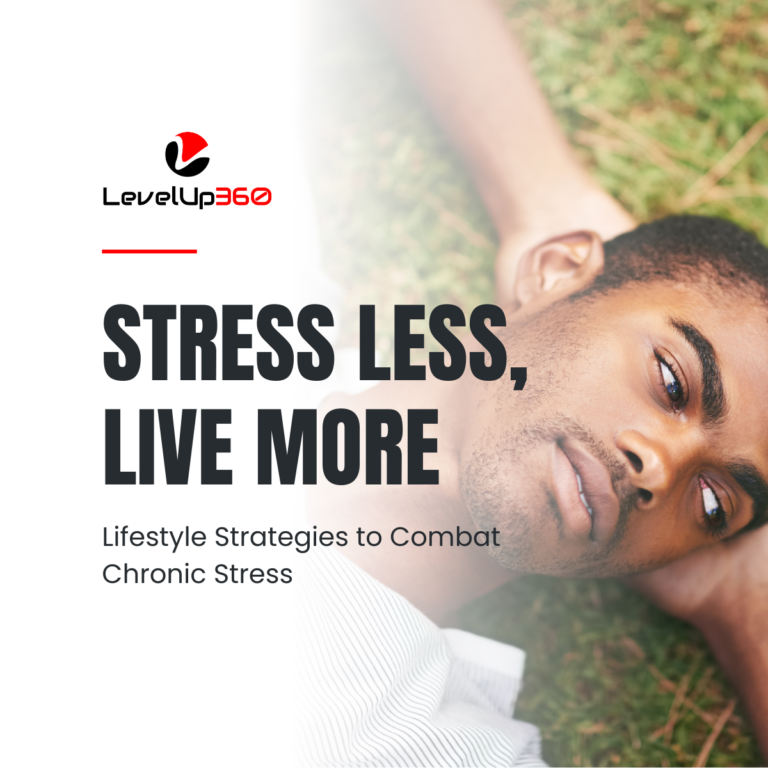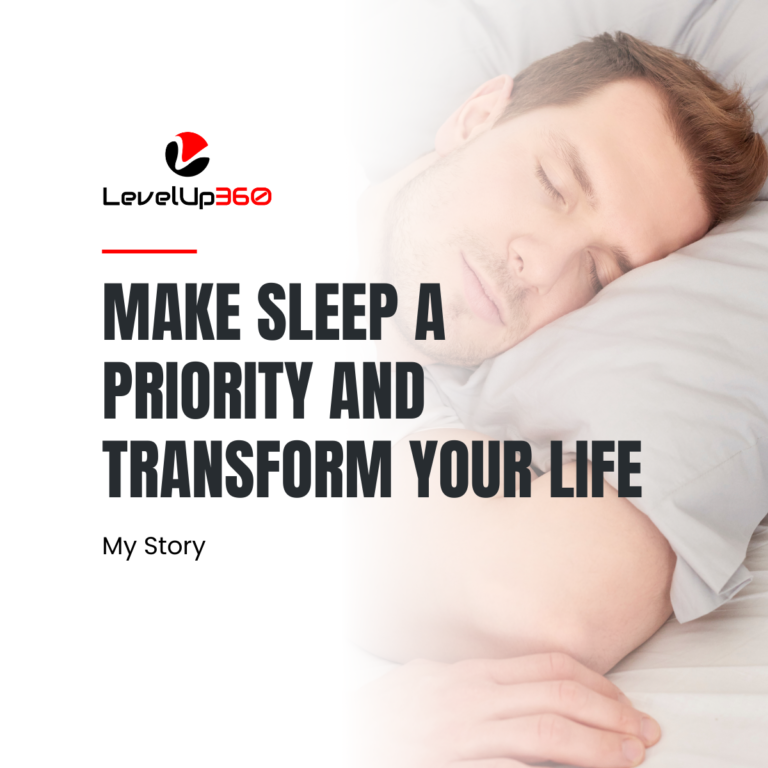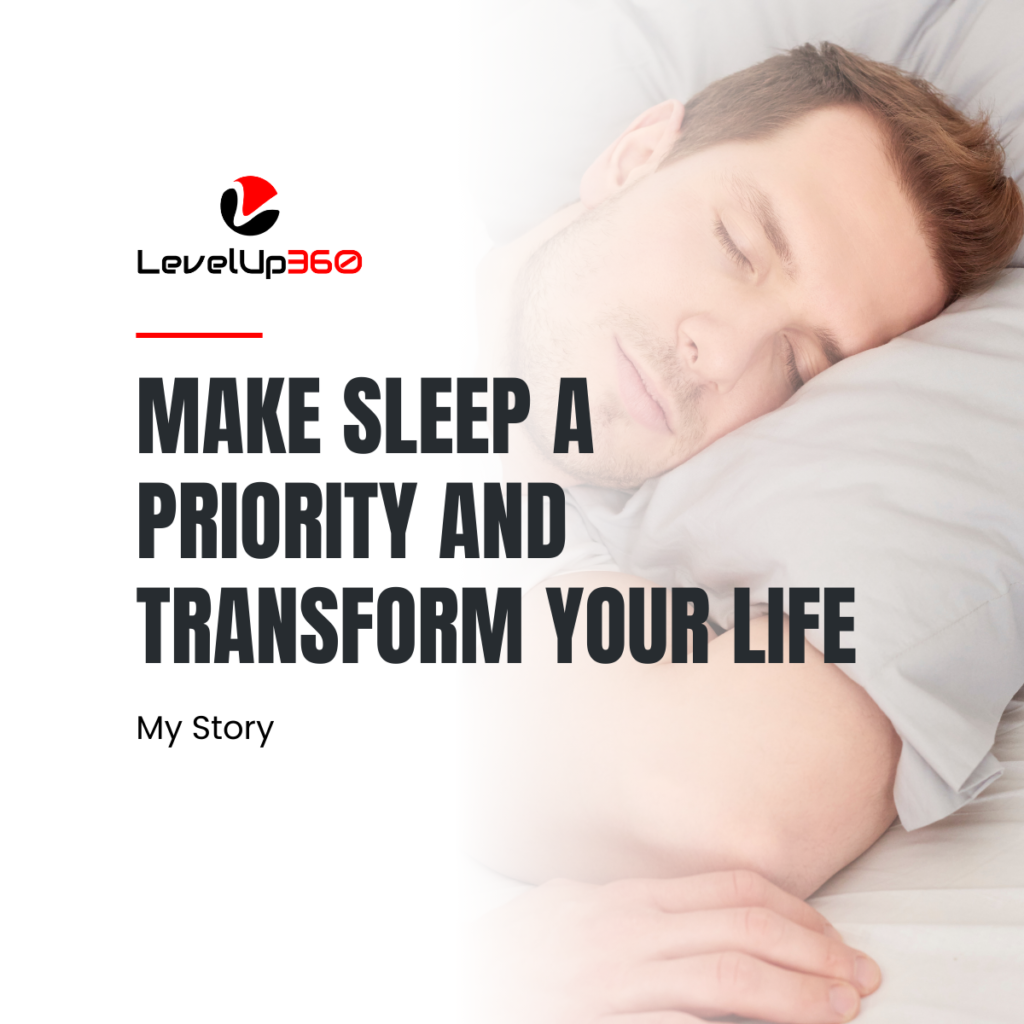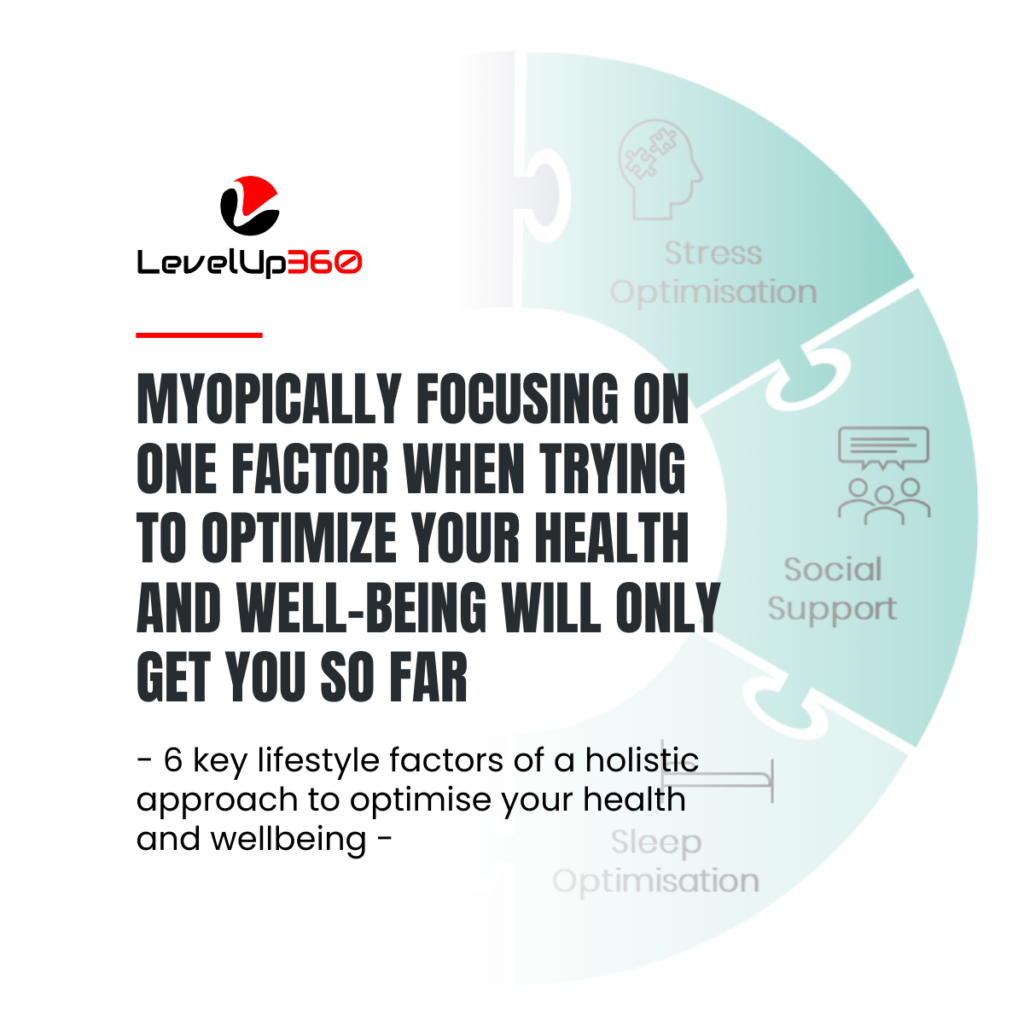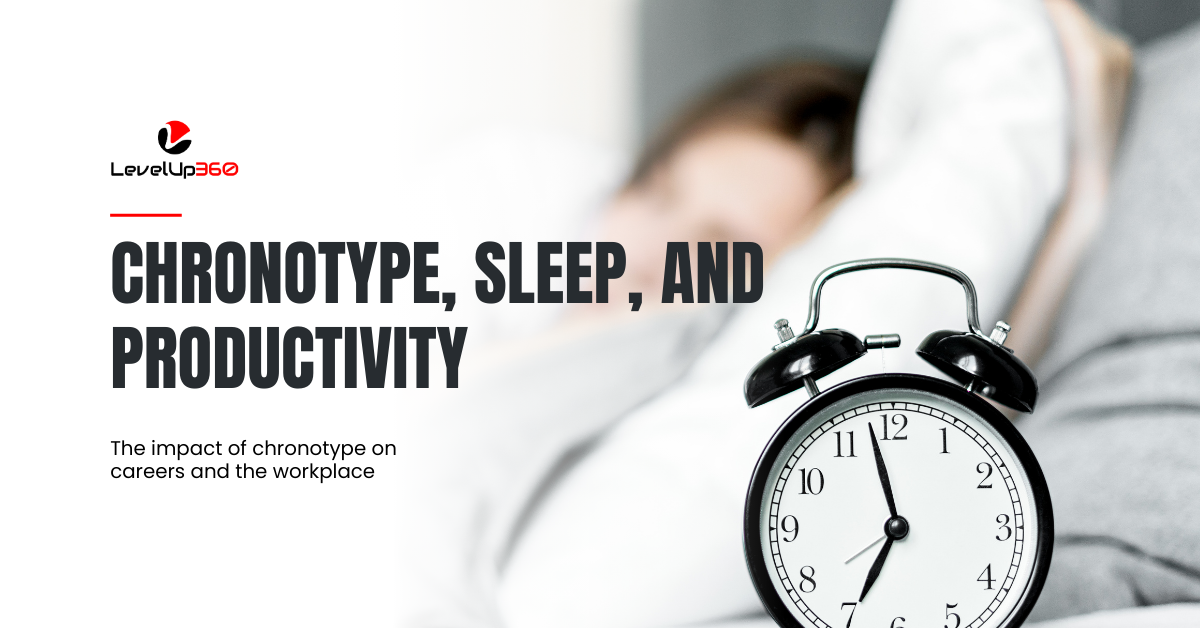
Chronotype, sleep and productivity
- The impact of chronotype on careers and the workplace -
Over the last 2 weeks I have published a series of posts highlighting the importance of quality sleep for overall health and wellbeing. Today, I will be discussing the impact of chronotype on work performance and productivity.
Chronotype can have a significant impact on careers and the workplace
What are chronotypes and how they impact sleep patterns?
Chronotypes refer to an individual’s natural tendency for sleep timing. Chronotypes can have a significant impact on sleep patterns, they are influenced by both genetic and environmental factors and vary from person to person. The most recognized chronotypes are:
- Morning person: These individuals tend to wake up early and feel alert and refreshed in the morning. They tend to have an earlier bedtime and prefer to be active during the day.
- Evening person: These individuals tend to have a later bedtime and feel more awake and alert in the evenings. They may have difficulty waking up in the morning and may prefer to be more active during the night.
- Intermediate: These individuals have a more moderate sleep pattern, with neither a strong preference for waking up early or staying up late.
- Bimodal: These individuals have two distinct periods of wakefulness and sleepiness, with one in the morning and one in the evening.
It’s important to note that chronotypes are not absolute and can be influenced by environmental and lifestyle factors. Additionally, some individuals may have a combination of chronotypes, and others may fall outside of these categories entirely.
Nevertheless, understanding one’s chronotype can help individuals optimize their sleep patterns for better health and productivity.
When an individual’s sleep schedule aligns with their chronotype, they tend to have better sleep quality, which can lead to improved physical and mental well-being, as well as increased productivity during the day.
On the other hand, forcing a “morning person” to stay up late or wake up early against their natural tendencies can lead to sleep deprivation and decreased productivity.
What factors drive your chronotype?
Chronotype is driven by a combination of factors, including:
- Genetics: Chronotype has a strong genetic component, and certain genes have been associated with a predisposition towards being a “morning person” or an “evening person”.
- Environment: Exposure to light and darkness, as well as social and cultural factors such as work schedules, can influence a person’s chronotype.
- Lifestyle: Habits such as regular exercise, stress, and alcohol and caffeine consumption can also impact the regulation of a person’s internal biological clock.
- Age: Chronotype can change throughout a person’s life, with many people becoming more “morning-oriented” as they age.
Overall, while genetics play a role in determining a person’s chronotype, environmental and lifestyle factors can also have a significant impact and should not be underestimated.
What are the potential consequences of not following your natural sleep patterns?
Not following your natural sleep patterns, or chronotype can have several negative consequences, including:
- Sleep deprivation: Forcing yourself to sleep at times that are not in line with your chronotype can result in sleep deprivation, which can impair cognitive function, including memory, attention, and problem-solving abilities.
- Decreased productivity: Sleep deprivation can also lead to decreased productivity, as it can negatively impact mood, motivation, and overall well-being.
- Health problems: Chronic sleep deprivation can increase the risk of health problems, such as obesity, heart disease, and depression, which can further impact productivity.
- Increased stress: When you are unable to follow your natural sleep patterns, you may experience increased stress, which can impact both physical and mental health.
- Impaired workplace relationships: Disruptions to sleep patterns can also impact relationships at work, as you may experience irritability, fatigue, and difficulty with communication and interpersonal interactions.
The impact of chronotype on careers and the workplace
Chronotype can have a significant impact on careers and the workplace, particularly for individuals with “evening person” tendencies. In traditional 9-5 work environments, evening people may face several challenges, including:
- Incompatible work hours: Evening people may find it difficult to work during standard work hours, as they naturally have more energy and peak productivity in the evenings.
- Sleep deprivation: Forcing an evening person to work during the day can result in sleep deprivation, which can impair cognitive function, decrease productivity, and negatively impact physical and mental health.
- Difficulty adjusting to shifting work: For evening people working in shift work, adjusting to night shifts can be particularly challenging, as it can disrupt their natural sleep patterns and lead to sleep deprivation.
- Stigma and discrimination: Evening people may also face stigma and discrimination in the workplace, as some may view their tendencies as a lack of discipline.
What does aligning my sleep schedule do for sleep quality, performance, and productivity?
Aligning your sleep schedule with your natural chronotype means scheduling your sleep according to the timing of your body’s internal biological clock. The biological clock, also known as the circadian rhythm, regulates the timing of sleepiness and wakefulness over a 24-hour period.
By aligning your sleep schedule with your natural chronotype, you can improve the quality of your sleep, and your performance and productivity by:
- Achieving better sleep efficiency: When you sleep at a time that is in sync with your body’s natural rhythm, you are more likely to fall asleep faster, stay asleep longer, and experience fewer awakenings during the night.
- Reducing sleep disturbances: Aligning your sleep schedule can reduce the incidence of sleep disturbances, such as insomnia, restless sleep, and sleep apnea, which can negatively impact the quality of your sleep.
- Improving sleep quality: By sleeping at the right time for your chronotype, you are more likely to experience deeper, more restful sleep that leaves you feeling refreshed and energized in the morning.
- Boosting daytime alertness: When your sleep is in sync with your biological clock, you will experience better daytime alertness, improved concentration, and enhanced overall performance.
Therefore, it’s important to prioritize sleep and aim to align your sleep schedule with your chronotype in order to maintain physical and mental health, as well as productivity and well-being.
How can employers accommodate different chronotypes in the workplace and promote better sleep and productivity for all employees?
- Offer flexible work hours: Allowing employees to choose work hours that align with their natural sleep patterns can improve sleep quality and increase productivity.
- Encourage breaks: Encouraging employees to take regular breaks during the day, especially in the afternoon, can help improve alertness and prevent burnout.
- Provide a sleep-conducive environment: Creating a sleep-conducive environment, such as minimizing noise and light levels, can help employees get better quality sleep during the day.
- Implement a “no-email” policy outside of work hours: Encouraging employees to disconnect from work outside of work hours can help reduce stress and improve sleep quality.
- Promote healthy sleep habits: Providing education and resources on healthy sleep habits, such as limiting caffeine and alcohol intake and establishing a relaxing bedtime routine, can help improve sleep quality.
- Support remote work: Offering remote work options can help employees create a more comfortable and sleep-conducive environment at home.
- Promote work-life balance: Encouraging employees to prioritize work-life balance, such as taking time off when needed, can help improve sleep quality and prevent burnout.
Conclusion
It’s important for employers and individuals to understand the impact of chronotype on careers and the workplace, and to make accommodations to support good sleep habits and improve overall health, wellbeing, and productivity.
It is also important for individuals to understand that although their chronotype has a strong genetic component and is also influenced by age, they can influence their internal biological clock by altering their environment and lifestyle.
Recommended reading
Recommended reading
Additional Resources
Feeling in control of your health
If you are interested in improving your health and wellness, check out other resources such as Our Blog, Free Resources and/or join our private Body-Mind Transformation Secrets Community on Facebook, and The 360 Transformation Blueprint Podcast on Spotify and go on an even deeper dive with me to uncover how to succeed in your health and wellness goals.
You may also be interested in our Sleep Secrets Cheat Sheet. It is a great resource with strategies to fix and optimize your sleep which is crucial to succeeding in your health and wellness goals.
Resources
References
https://www.sciencedirect.com/science/article/pii/S1389945719308287
https://www.sciencedirect.com/science/article/pii/S2352721820300826
https://www.sciencedirect.com/science/article/pii/S2352721822001747
https://www.sciencedirect.com/science/article/pii/S138994571931250X
https://www.sciencedirect.com/science/article/pii/S0022510X17313382
https://www.sciencedirect.com/science/article/pii/S2161831322012844
https://www.sciencedirect.com/science/article/pii/S0191886919303071
https://www.sciencedirect.com/science/article/pii/S0001457514000657
https://www.sciencedirect.com/science/article/pii/S1389945714003463
https://www.sciencedirect.com/science/article/pii/S2352154619301391
https://www.sciencedirect.com/science/article/pii/S1389945717302757
https://www.sciencedirect.com/science/article/pii/S0272523122000041
https://www.sciencedirect.com/science/article/pii/B9780128229637003789
https://www.sciencedirect.com/science/article/pii/S1098301510653594
https://pubmed.ncbi.nlm.nih.gov/25469597/
https://pubmed.ncbi.nlm.nih.gov/34549270/
https://pubmed.ncbi.nlm.nih.gov/36375334/
https://pubmed.ncbi.nlm.nih.gov/35616501/
https://pubmed.ncbi.nlm.nih.gov/34549270/
https://pubmed.ncbi.nlm.nih.gov/17561549/
Pictures

